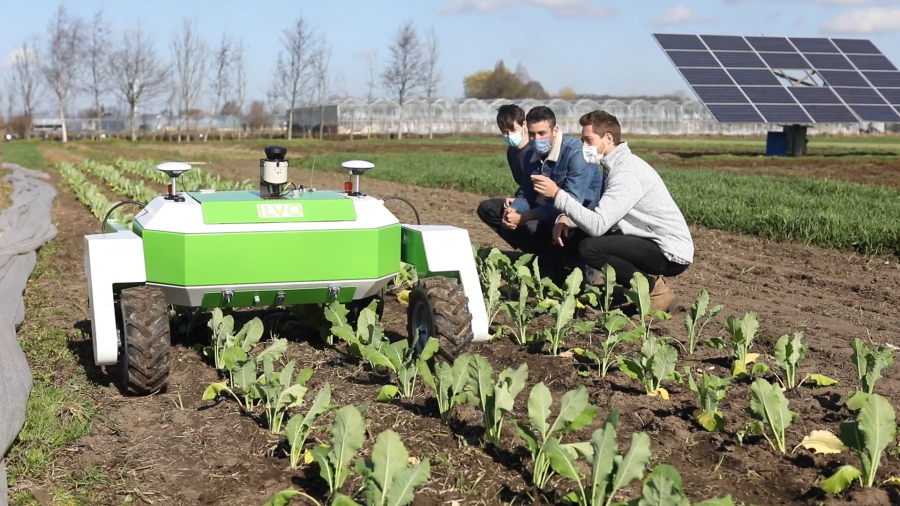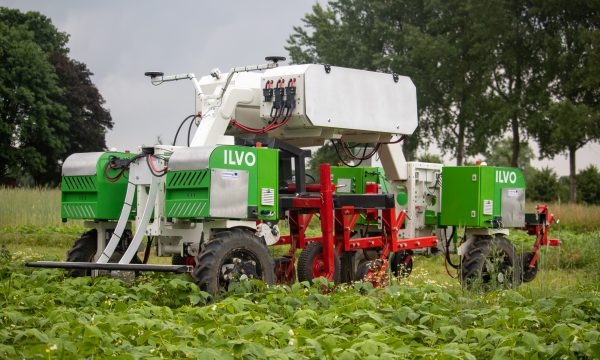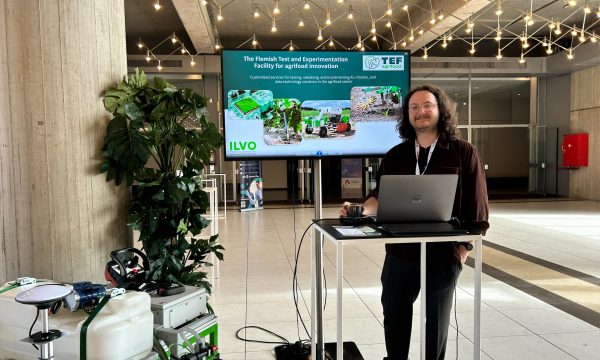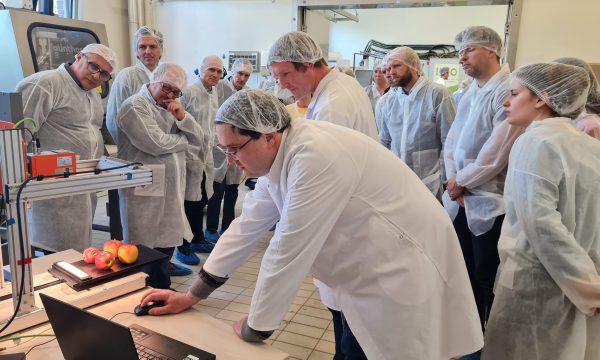Press release Winner of organic agriculture and agroecology thesis award: student develops robot for labor-intensive tasks on small-scale farms together with farmers

Master's and Bachelor's students who graduated in 2019 or 2020 could apply, by sending in their thesis and translating the results into an easy to read article. A jury consisting of representatives of the organic sector (Boerenbond and BioForum), Flanders Department of Agriculture and Fisheries and the knowledge networks NOBL and CCBT judged all submissions on content, innovation and research quality and relevance to the Flemish organic practice.
This time the winner was Rembrandt Perneel, UGent master student in industrial sciences: industrial design. The thesis was titled: 'Design and modelling of a modular robotic system to improve weed management in raised bed organic farming'. Supervisors were Prof Dr ir Francis Wyffels and Prof Jan Devos of UGent and co-supervisor Dr Ir Simon Cool of ILVO.
For his thesis, Rembrandt started by talking to six Community Supported Agriculture (CSA) farms in Belgium and the Netherlands. The labor intensiveness of weed control in particular proved to be the biggest issue. Moreover, CSA companies grow many different crops, which increases the demand for manual labor. 'Therefore, I set to work on the design and development of a (semi-) autonomous, modular robot platform that can be used for weed control on small-scale farms and thus play a supporting role in the performance of labor-intensive tasks' explains Perneel. The ultimate goal of is an affordable, multi-purpose robot, which in addition to weeding can also be used to sow or harvest and where the farmers can adapt the system to the farm's needs.
'By addressing a real-life need, involving the farmers throughout the development of the robot, and also keeping a close eye on the cost of production, the chances that this innovation will be used in practice are very high. These aspects were decisive in the unanimous decision to award Rembrant Perneel this prize,' says the jury. The Department of Agriculture and Fisheries rewarded the winner of this edition with a cash prize of €1000.
Besides the winner, 2 other theses were nominated for their commendable work:
- Michaël Devos with his master thesis entitled 'Optimization of weed control in the cultivation of organic frozen spinach'- Promotor Prof. Dr. ir. Benny De Cauwer (UGent) and ir. Lieven Delanote (Inagro vzw)- examined the cultivation technical possibilities to optimize weed control in organic spinach for industrial processing. For example, faster growing varieties appear to have an advantage. A sufficiently high planting density of 200 plants/m² is also important, especially in combination with post-emergence weeding. Furthermore, a narrow row spacing (10-12 cm), one burning on a false seedbed or in pre-emergence, as little soil disturbance as possible on a false seedbed, and two weeding times in post-emergence increase the chances of a quantitatively and qualitatively acceptable final product.
- In Mikey Van Keersbilck's bachelor thesis entitled 'Cultivation of small fruits via extracts derived from companion planting in function of pesticide reduction' under internship supervisor Lieven Verhaeghe from Vives university college, he applied extracts of plants known to be unpopular with target insects in the fight against pests. These extracts were applied in strawberry cultivation against the white fly and the Asian fruit fly. This showed that it is indeed possible to grow strawberries with only the extract of African marigolds as a remedy against these insects. With an efficacy of 77.78%, this comes close to typical insecticides, but without the undesirable side effects on bees, bumblebees and other beneficial insects.
'Organic farmers are confronted every day with questions about their crops, the social and economic aspect and many other issues. Each answer forms a new piece of the puzzle, making it increasingly full. We challenge students to convert their acquired knowledge into practically relevant solutions and to choose a thesis topic within organic agriculture," says the organic sector. 'And we like to reward the best thesis for their efforts by means of a prize.' add the organizers.
> Read the winner's popularized article (in Dutch).
More info about het Vlaamse BioKennisNetwerk (in Dutch)


